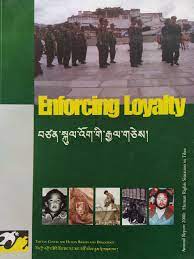The Tibetan Centre for Human Rights and Democracy (TCHRD) expresses its dismay over the rejection of a draft resolution on human rights situation in China at the 60th session of the United Nations High Commission on Human Rights (UNHCHR) in Geneva.
A draft resolution (E/CN.4/2004/L.37) proposed by the United States of America was dismissed at the 60th UNHCHR when China called for “No-Action Motion”. The motion warranted voting by all the 53 member states of UN on the resolution. The voting on China’s No-Action Motion which took place at 18.00 hours on 15 April resulted in 28 votes in favour, 16 against and three abstentions.

